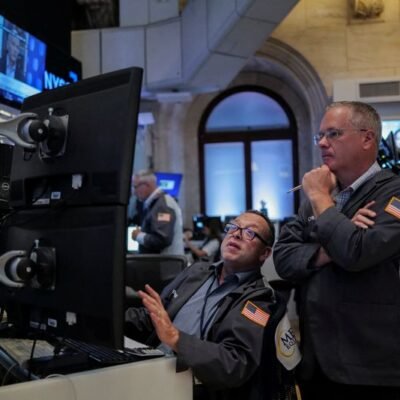SINGAPORE – A company director who
offered an
AI-powered
trading investment scheme
cheated multiple victims of US$537,000 (S$691,000) and over $3.96 million in total.
On Aug 27, Ong Kai Min, 42, from a private company called Singapore Index Trading Institute (SitI), pleaded guilty to eight counts of cheating involving eight investors – seven people and a company.
The eight charges involved US$537,000 and more than $2.7 million.
Multiple other cheating charges will be considered during his sentencing.
Ong told investors that SITI had developed several artificial intelligence (AI) programmes that conducted automated trades into financial instruments on their behalf.
Investors were further told that the AI programmes boasted historical returns of a minimum of 3 per cent a month and projected returns of between 2 and 10 per cent a month.
In reality, no trading activities were conducted with the investors’ monies.
Ong, a Singaporean, was a director of four firms, the police said in an earlier statement.
The companies are SITI, Bookhero, OKM Holdings and C7 Traders Vanuatu (C7TVL), the last of which was incorporated in the Pacific Ocean island-nation.
SITI offered educational courses where Ong taught participants how to trade in areas such as forex.
C7TVL operated an online trading platform known as C7 Traders.
Between May 2019 and March 2021, Ong offered an initiative known as the SITI AI trading investment scheme to potential investors.
Court documents stated that Ong conducted seminars where he talked about SITI’s AI trading programmes.
Among other things, potential investors were told that trades would be conducted on the investors’ personal trading account on C7 Traders, and that C7TVL was an independent brokerage from SITI.
Deputy Public Prosecutor Jordon Li said: “None of the above was true. The accused owned both C7TVL and SITI… None of the investors’ funds were ever forwarded to C7TVL to fund investors’ trades.
“Additionally, while the trading scheme did not guarantee returns to the investors, the accused offered ‘(letters) of guarantee’ to some… where SITI would guarantee the investment capital and returns, which varied from 2 per cent to 10 per cent for different investors.”
The letters also stated that Ong would be personally liable if SITI was unable to fulfil its financial obligations.
To participate in the scheme, investors had to open trading accounts on C7 Traders and deposit cash into a bank account belonging to Bookhero.
From October 2020 onwards, Ong directed investors to make payments to SITI.
Investors were told that Bookhero and SITI were collecting monies on C7TVL’s behalf.
They were also told Bookhero and SITI would forward their monies to C7TVL to fund their accounts on C7 Traders.
After providing their monies to Bookhero or SITI, investors could monitor their C7 trading accounts by using a mobile phone application known as MetaTrader 4.
The initial account balances shown in the application would appear to match the amounts the investors had deposited. The application would also show trades with positive returns, said DPP Li.
“In truth, no real trading activity was conducted on C7,” he added.
Ong then used the investors’ money for other purposes including operational expenses of both SITI and C7TVL, and his own personal expenditures.
He also paid out more than $283,000 from the money to investors, based on their withdrawal requests.
Between March 2021 and June 2022, the Commercial Affairs Department received 30 reports, alleging fraud by SITI and C7TVL.
Ong was charged in court in January 2025.
His mitigation and sentencing are expected to take place on Sept 19.
For each count of cheating, an offender can be jailed for up to 10 years and fined.





